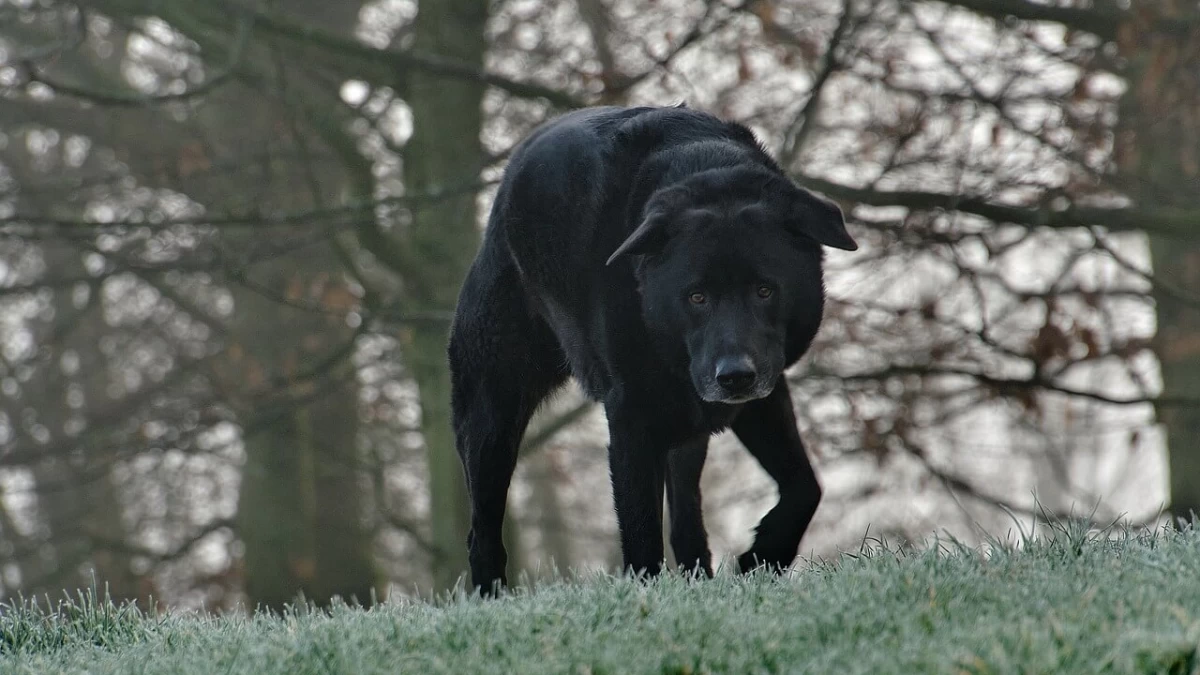Laryngeal Paralysis in Dogs: Causes, Symptoms & Treatment
05.03.2022.
There aren’t many things that are as irritating as losing your voice. You might be surprised to learn that your dog can also lose its voice. One of the conditions dogs can get is laryngeal paralysis. Many dog owners don’t know what to think of it or how dangerous laryngeal paralysis in dogs really is. If you are worried about your dog’s health and wellbeing, here are a few things you should know about this condition in dogs.
What is the larynx?
Before we go into details about laryngeal paralysis in dogs, we need to understand what a larynx is. The larynx is also called the “voice box,” and it is an organ that consists of several separate plates of cartilage that form a box in the dog’s throat. The larynx’s main task is to close the trachea and lungs while eating and drinking.
What is laryngeal paralysis in dogs?
The laryngeal muscles are responsible for the stability and function of the dog’s voice box. They are responsible for contracting, and when they fail to work correctly, laryngeal paralysis can happen. Laryngeal paralysis in dogs can best be described as an inward collapse of the cartilages in the larynx. When the laryngeal muscles become paralyzed or weak, they will relax, which will result in the collapse of the cartilage.

How can I know if my dog has laryngeal paralysis?
Most dog owners will not know what’s exactly wrong with their dogs. However, most of us will undoubtedly notice something’s wrong with our dogs. The main problem is that most dog owners rarely think about laryngeal paralysis as a possible problem. Most of us notice the most common sign of this condition in dogs - the change in the dog’s bark. When that happens, dog owners book an appointment with their vet. The best way to make sure your dog has this condition is to get a confirmation from your vet.
Symptoms of laryngeal paralysis in dogs
Like any other condition dogs can develop, laryngeal paralysis comes with a specific set of symptoms that might tell the owners and vets what the exact problem is. Another potential issue with this condition is that laryngeal paralysis symptoms can vary. Nevertheless, here is a list of the most common symptoms dogs with laryngeal paralysis exhibit;
- Noisy breathing
- Cough
- Shortage of breath
- Exercise intolerance
- Dysphonia (changes in the dog’s bark)

The first symptom is usually a cough, which most dog owners never attribute to this condition. In fact, many vets will not think of laryngeal paralysis as the first possible cause.
Which dogs are at risk of laryngeal paralysis?
Theoretically, all dogs with a larynx are at risk of developing laryngeal paralysis. However, this condition is mainly seen in older dogs and large and giant breeds. It is also commonly seen in these breeds;
What causes laryngeal paralysis in dogs?
Many laryngeal paralysis cases in dogs are idiopathic, which means there is no known cause. One of the possible reasons is genetic. That means that a dog is born with laryngeal paralysis, but vets haven’t yet discovered the genetic aspect of the disease. Severe trauma to the throat or neck can cause this condition also. Vets noticed endocrine disorders, like Cushing’s disease or hypothyroidism, can cause laryngeal paralysis.

How is it diagnosed?
The first thing the vet will closely analyze is the dog’s clinical signs and medical history. If there were laryngeal problems, they might suspect this condition pretty fast. However, in most cases, the vet will want confirmation, which means additional tests will be required. Vets might want blood and urine tests and chest x-rays. However, the confirmation will require a larynx examination with a laryngoscope or endoscope.
How is this condition treated?
The exact treatment will depend on the severity of the laryngeal paralysis. Mild cases are often treated with sedatives, antibiotics, or anti-inflammatory drugs. However, congenital or extremely severe cases will require surgical correction.
Medication treatment varies in success, and vets usually prescribe doxepin, whose success is questionable, to say the least. Some dogs make great progress, and others feel no difference with this drug. Surgery is usually pretty successful, and dogs are typically symptom-free after the surgery.
World Dog Finder team







Share